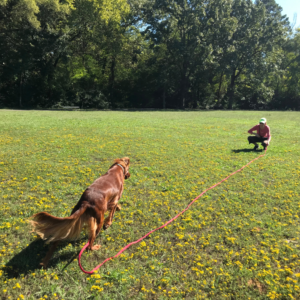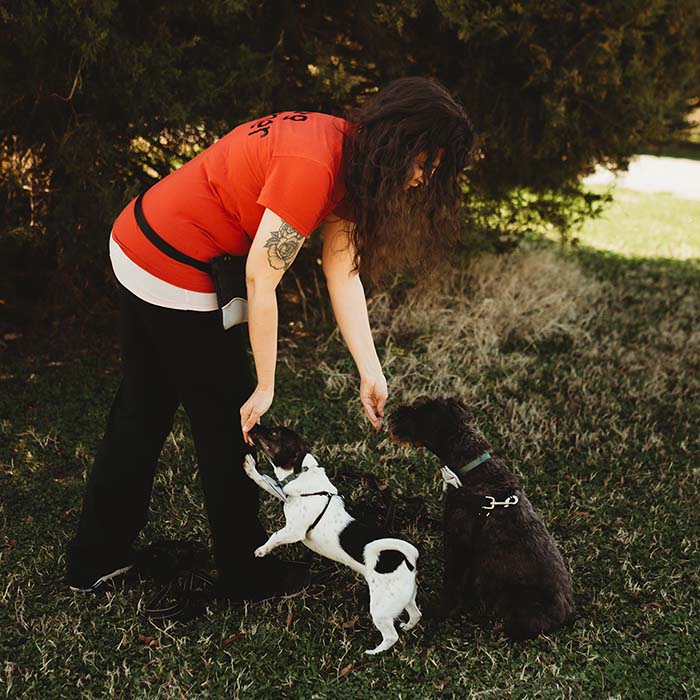How to Train Drop It
Before you begin, condition a marker word or a clicker before you add the cue. You should have some indicator of letting your dog know that what they did is correct and a reward is coming.
Drop it means please release that item in your mouth.
I learned using a trade method for drop it. Typically this means engaging in tug with a dog, and then putting a treat in front of their nose to prompt an open mouth and a trade of the toy for the treat. The hard part about this is that it rarely works in class or in private lessons. I needed to find some different options. I now teach two methods:
- The trade, for when you’d like to practice while playing or you can get a hand on the item in your dog’s mouth; and
- The scatter, for when you need to condition a cue that involves distance or no items.
The multiple treat scatter seems to have been pioneered by Chirag Patel, and he has an excellent video breakdown here:
You can alternate between a treat scatter and a trade, but both must be practiced BEFORE the emergency.
To practice, say “drop it”, and then drop a handful of treats. This conditions the dog to look to the ground, and then at you in real life situations. The addition by Chirag is bringing your hand to the ground to point out food, which also helps you reach in to grab an item down the line, and he practices both while standing and sitting.
In event of the emergency:
- Try NOT to chase the dog down, grab their mouth and yank out the item. Offer a trade and don’t back them into a corner. Practicing before the emergency helps make this less harrowing for everyone.
- DO stay calm and grab high-value treats, like deli meat or cheese. Try dropping the treats for a trade.
Here’s another example of conditioning the word with a treat toss from JW Dog Training:
Want more life-saving cues? See the Come article here, and the Leave It article here.




